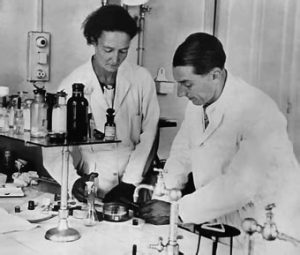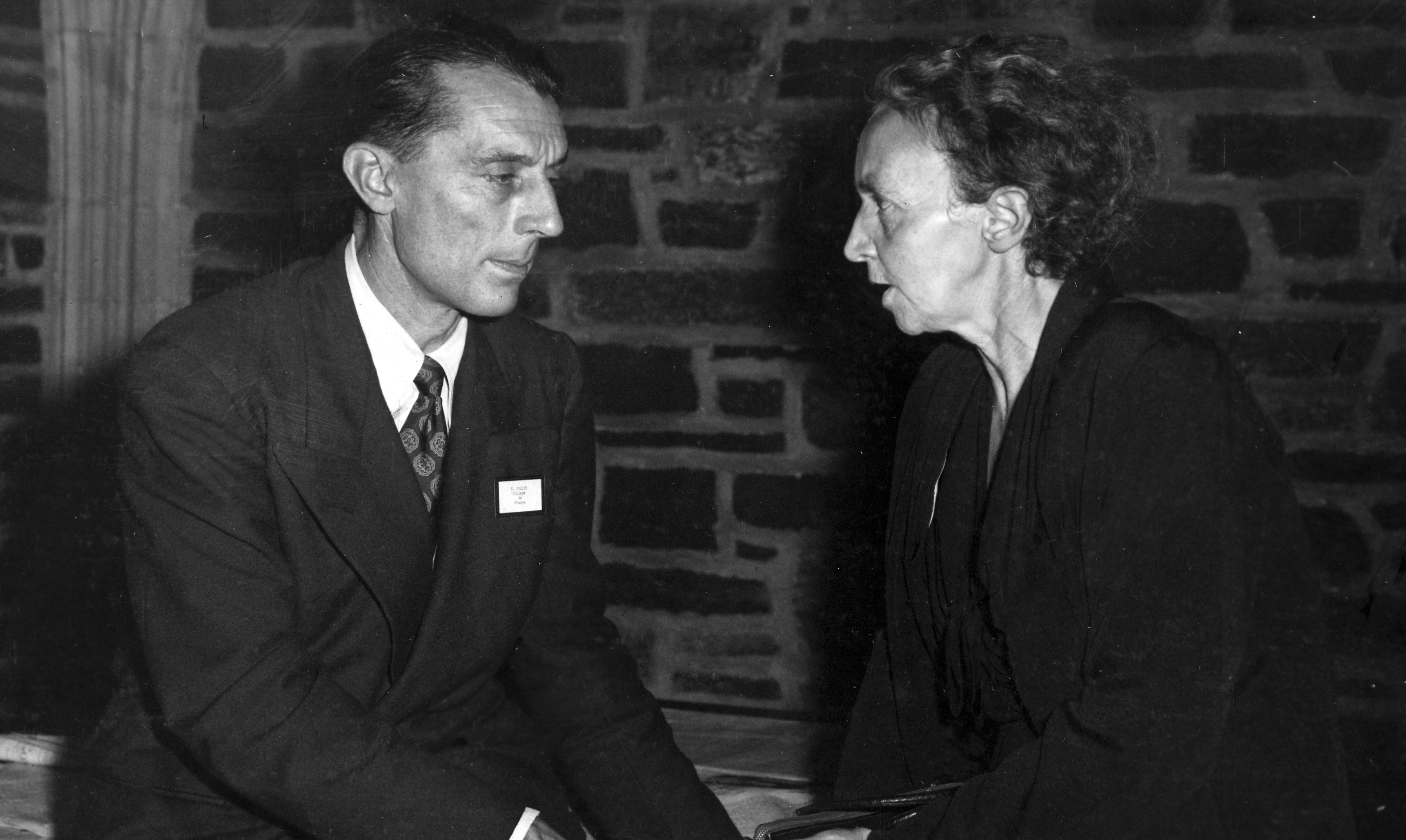[et_pb_section bb_built=”1″][et_pb_row][et_pb_column type=”1_2″][et_pb_text _builder_version=”3.13.1″]
There are many characters that greatly influenced the technology and medicine of the world. Two of them were Joliot-Curiee, Iréne and Frédéric. Let’s know a little about them:
Jean Frédéric Joliot, a French chemist, went to work in the laboratory with Marie Curie as an assistant to the important Polish physics and chemistry.
There also worked, in a similar position, the daughter of the Curie spouses, Irene Pronto, the two laboratory assistants fell in love and got married.
From then on, they formed a pair of researchers similar to Pierre and Marie Cirie, their in-laws and parents. Frédéric changes his name to Frédéric Joliot-Curie. The couple’s main discovery is made when they bombard an aluminum sample with alpha particles. After the bombardment part of the aluminum becomes a phosphorus variety heavier than normal and with radioactive characteristics. In this way, the Joliot-Curie spouses produce a radioactive element for the first time in the laboratory. They show that any element can obtain radioactive characteristics if it is subject to the proper procedure.
During the Second World War Frédéric and Iréne remain in Paris as part of the resistance against the invasion. They manage to put out of reach of the Nazis the provisions of heavy water, essential compound in the operation of the nuclear reactors.
[/et_pb_text][/et_pb_column][et_pb_column type=”1_2″][et_pb_text _builder_version=”3.13.1″]
At the end of the war they are still subject to persecution for their political positions. They are stripped of their positions and even become isolated by the same scientific establishment. The Joliot-Curie win the Nobel Prize in Chemistry in 1935.
In 1955 Frédéric was one of the eleven intellectuals who signed the Russell-Einstein manifesto, which called for peaceful solutions to the international conflicts that existed at the time of the Cold War.
He was awarded in 1947 with the Hughes Medal, awarded by the Royal Society, for his distinguished contributions to nuclear physics, particularly the discovery of artificial radioactivity and the emission of neutrons in the fission process. In his honor the crater Joliot was named on the surface of the Moon.
He died on August 14, 1958 in the city of Paris, of a liver disease. Irène Joliot-Curie died on March 17, 1956 at her residence in Paris as a result of leukemia, resulting from an overexposure to radiation in the course of her work.
Learn more about your health and well-being at Pharmamedic.

[/et_pb_text][/et_pb_column][/et_pb_row][/et_pb_section]








